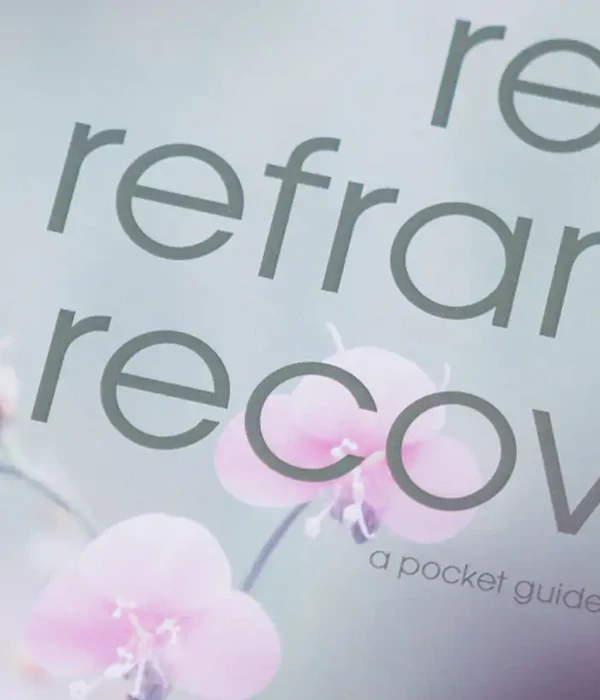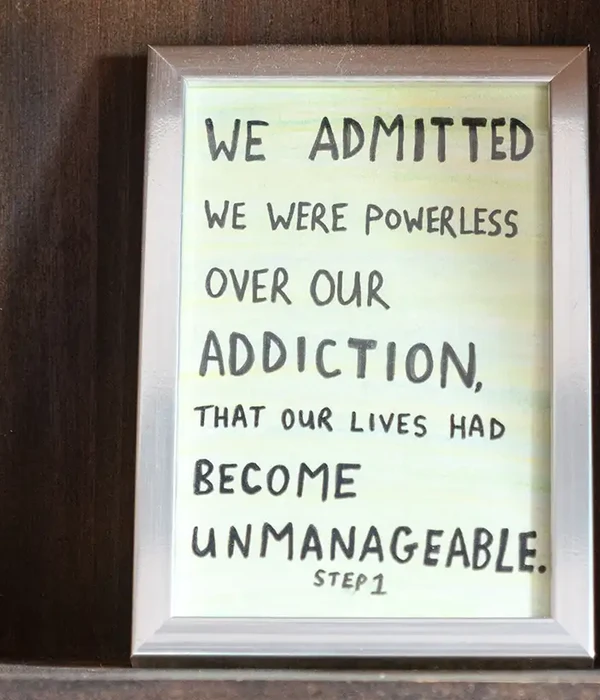Trauma Treatment
Trauma treatment can help you recover and improve your quality of life, even if your traumatic experience happened years ago. Trauma doesn’t have to control your thoughts, your feelings, or your future. With the right help, you can understand your reactions and start to heal.
Knowing there are effective and personalised options available means you have a starting point for change. If you or someone you care about is struggling, learning about these treatments and wider mental health treatment options could be a crucial next step.

Take the First Step Towards Recovery
Steps Together offers personalised support and proven treatments, providing the care, guidance and encouragement you need to move forward with confidence and build a healthier future.

Understanding Trauma and Its Effects
A traumatic event is an experience that overwhelms your sense of safety and control. Events like serious accidents, physical or sexual assault, sudden loss of a loved one, or exposure to war and natural disasters are common examples. Some people also experience trauma from childhood abuse, neglect, or domestic violence.
Living through ongoing stress, such as homelessness or poverty, can also be traumatic. Each person’s reaction to these situations is different. Certain groups, such as refugees or people who have faced repeated violence, may be more likely to develop trauma-related issues.
Common Symptoms
Trauma affects you in many ways, both emotionally and physically. You might experience re-experiencing symptoms, such as flashbacks or nightmares, where you feel as if the trauma is happening again. Others notice dissociation, where you feel disconnected from reality or your memories.
Many people also develop hypervigilance, which means being constantly alert or easily startled. Feelings of anxiety, guilt, or shame are also common. Avoidance is another symptom, like you might stay away from places, people, or activities that remind you of the event.


Impact on Daily Life
Trauma symptoms can make daily activities difficult. For example, re-experiencing can disrupt your sleep and concentration, affecting work or school performance. Avoidance might lead you to pull away from friends and family, creating feelings of isolation.
Hypervigilance can make ordinary situations feel threatening and exhausting. If you are experiencing dissociation, it can be hard to stay focused and engaged with others. Some people face extra challenges, such as financial difficulties or homelessness, which can make recovery more complicated.
Trauma Treatment Options
There are several proven approaches to treating trauma, often involving a combination of psychotherapy and medications. Treatment for PTSD and trauma may include therapy for anxiety or depression, and supportive therapies to aid emotional healing. Trauma treatment may include:
Cognitive Behavioural Therapy
Psychological talk therapies are often the first recommended treatment for trauma and PTSD. The main option is trauma-focused cognitive behavioural therapy (CBT), which helps you process and manage upsetting memories and thoughts.
CBT sessions are usually held once a week over several months and can be one-on-one or in a group. A therapist can help you face memories or triggers at a pace that suits you. Sessions may also teach you helpful coping strategies.
Medication
If therapies do not help or if your symptoms are very severe, medication may be prescribed. Medicines often used include certain antidepressants such as sertraline, paroxetine, or venlafaxine. These drugs can help reduce anxiety, depression, and intrusive thoughts linked to PTSD, but they are not often the main treatment used.
You may need to try more than one medicine to find what works best for you. Medicines are usually started by a psychiatrist and reviewed regularly. It is important to follow your doctor’s instructions and not stop medication suddenly, as medications like selective serotonin reuptake inhibitors may have possible side effects.
Eye Movement Desensitisation and Reprocessing (EMDR)
EMDR therapy is a structured therapy designed to help you process traumatic memories. During EMDR, the therapist guides the patient’s eye movements, usually by moving their finger back and forth, while the patient recalls the traumatic event.
This method aims to reduce the emotional impact of traumatic memories, so they become less upsetting and can help you gain control over your emotions. EMDR is recommended for PTSD treatment when other trauma treatments are not suitable.
Group Counselling
Group therapy for trauma provides a safe, supportive space where people with PTSD and other trauma-related conditions can share their experiences with others who have faced similar challenges. Led by a trained therapist, group therapy can help encourage connection, reduce feelings of isolation, and promote healing through shared understanding.
Participants learn coping skills, build trust, and gain insight from others’ perspectives. Group therapy can be especially helpful for those recovering from trauma, as it fosters empathy, validation, and a sense of community throughout the healing process.
Services that our multi-speciality addiction rehabilitation centres offer

Post-Traumatic Stress Disorder and Related Conditions
Post-traumatic stress disorder (PTSD) can develop after frightening or life-threatening events. PTSD symptoms often include flashbacks, nightmares, and distressing memories of the traumatic event. You might feel worried, on edge, or irritable. It is common to try to avoid places or people that remind you of what happened.
Many people notice changes in mood and thinking. These may include feelings of numbness, guilt, or blame. You may also struggle with sleeping, poor concentration, or feeling easily startled. Sometimes, physical symptoms show up, such as headaches or stomach issues. In more severe cases, structured residential treatment can provide intensive care and a safe environment for recovery.
Complex PTSD (C-PTSD)
Complex PTSD (C-PTSD) develops after prolonged or repeated trauma, unlike PTSD, which typically stems from a single event. Common causes include ongoing childhood abuse, domestic violence, or captivity. C-PTSD often involves deeper emotional and relational challenges than standard PTSD.
People with C-PTSD share many symptoms with PTSD, such as flashbacks and anxiety. However, they also experience added challenges like emotional regulation difficulties, troubled relationships, and a deeply negative self-image, often rooted in long-term trauma and repeated harm.

Assessment and Diagnosis
A formal diagnosis for trauma disorders often begins with a detailed interview. A mental health professional, such as a psychologist or psychiatrist, will ask about your symptoms, experiences, and how long they have been affecting you. These discussions focus on key trauma-related symptoms like flashbacks, nightmares, and avoidance behaviours, helping to identify the most appropriate therapy modalities for your recovery.
To support the diagnosis, psychologists and psychiatrists often use screening and assessment tools. These tools help measure the type and severity of your symptoms. For example, they may ask how often you experience distressing memories or how much your life is disrupted by anxiety.
Diagnosis, screening, and assessment play key roles in helping develop a trauma treatment plan. Trauma affects people differently, so the approaches used in formal treatment have to be adjusted based on your individual needs.
Support and Recovery
Getting help after trauma often involves support from others as well as seeking professional care. It is also important to manage challenges like poor sleep and emotional withdrawal, especially for survivors of rape or sexual assault.
Peer and Community Support
Connecting with others who have PTSD and other trauma-related mental health conditions can help you feel less alone. Peer support groups provide a safe environment where you can discuss your concerns openly. You may find comfort in hearing about different coping strategies and learn what has helped others recover.
Community organisations often offer support groups, helplines, or workshops. Some of these groups are led by people who have their own experience of trauma, which can make them more understanding and relatable.
Support for Trauma Survivors of Sexual Assault
If you are a survivor of rape or sexual assault, specialised support is available. Many charities provide confidential counselling, practical advice, and crisis support. You can also access helplines that offer information and someone to talk to at any time.
Trauma from sexual assault often brings specific challenges, such as constant fear and distress. You might experience flashbacks, intense shame, or guilt. Specialist support teams are trained to help with these feelings and can connect you to medical care and legal advice.
Managing Sleep and Social Withdrawal
Trauma can greatly affect your sleep. You may have trouble falling asleep, wake up often, or have disturbing dreams. Poor sleep can make it harder to recover and may affect your mood.
Withdrawal symptoms are common after trauma. You might feel distant from others, lose interest in activities, or avoid reminders of what happened. It helps to take small steps to re-engage with routine activities and ask for support from trusted people.

Overcome Your Trauma Today
When beginning the journey of trauma treatment, it’s natural to have questions about effective therapies, common symptoms, and treatment techniques used by professionals. Recognising the impact of trauma is the first step, and seeking professional help can make a real difference.
At Steps Together, we offer compassionate, evidence-based care tailored to your unique needs. Our team is here to help you understand your experiences, manage symptoms, and move forward to build a future, free from the weight of the past holding you back.
Frequently Asked Questions
What constitutes best practices in the management of trauma?
Best practices include utilising trauma-focused therapies, establishing a safe environment, and fostering a collaborative relationship between you and your therapist. It is important that your treatment is personalised to your circumstances and needs.
Are there recent advancements in therapy for PTSD?
Recent advancements have focused on refining existing methods like EMDR and trauma-focused CBT. More research is being conducted on digital therapies and remote interventions, including online CBT and teletherapy.
What are the main recognised symptoms of PTSD?
PTSD symptoms are grouped into four main areas: reliving the trauma, avoidance, negative changes in thoughts and feelings, and increased arousal. Specific symptoms may include distressing memories, nightmares, avoiding reminders of the trauma, feeling detached, difficulty sleeping, irritability, and being easily startled.
Which therapies are most effective for treating PTSD?
Cognitive Behavioural Therapy, especially trauma-focused CBT, is widely recommended. Eye Movement Desensitisation and Reprocessing is another therapy that may help with symptoms.
How does EMDR therapy function in the context of trauma?
During EMDR, you think about the traumatic event while your therapist guides your eye movements. This process helps your brain manage painful memories and reduce their impact.
What techniques are recommended for therapists specialising in trauma recovery?
Therapists often use grounding exercises, relaxation techniques, and psychoeducation about trauma. Working from a trauma-informed perspective helps you feel safe and understood. Ongoing training and supervision are also recommended for therapists to stay up to date and deliver effective care.





